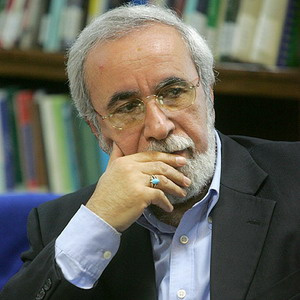Russia is ignoring Iran’s added value in nuclear equations
Iran, Russia and Qatar-who enjoy 60 percent of total gas resources of the world-have recently made an agreement to establish an OPEC-like gas organization... A note by Dr.Sabah Zangeneh

Iran, Russia and Qatar-who enjoy 60 percent of total gas resources of the world-have recently made an agreement to establish an OPEC-like gas organization. But there are many questions left unanswered about the roles and functions of this organization and its relevance to the political interactions of the countries involved.
Here is a commentary on the issue by Sabah Zangeneh, an expert on international issues.
The idea of establishing an OPEC-like gas organization is remarkable but at the same time, it needs scientific surveillance as well. Establishing a gas organization has two aspects, political and economic. On the political aspect, one would ask: Which countries are going to be members of the organization? What would be their functions? What influence can such organization make on political calculations of Europe and the US? What changes such organization will make on Iran’s role and weight on global energy equations?
Russia’s presence in such organization also raises some questions: Can this organization really control global gas market? Will Russia’s abundant gas supplies help the country to maneuver easily on the global stage or not? Will it lead to a decrease in Iran’s influence on oil market? What is the relationship of Iranian-Russian gas cooperation to Iran’s nuclear case? All these questions must be answered in order to determine the advantages and disadvantages of such organization.
As for western countries, they would certainly not like such organization. But the point is that western countries possess the technology of transforming gas to other products while Russia, Iran and Qatar do not fully have the technology.
The point here is that Iran enjoys abundant gas supplies and this would make an added value for the country and this value would increase Iran’s ability in global bargaining. On the other hand, gas is a direct source of energy compared to oil and is a cleaner source as well which has a better future in global markets. Transforming gas to other products can add to Iran’s economic power as well. But how is it possible to equate Iranian and Russian roles in Europe’s energy market?
OPEC was once a powerful organization which could insert its influence on oil price setting and political interactions of the world. But nowadays this role has been diminished. An OPEC-like gas organization needs meticulous planning so that it will not have the same fate. The other important point here is that the gas incomes should be a good supplementary for Iran’ oil wealth.
Considering the role Russia plays in Iran’s nuclear case, Iranian and Russian cooperation in the proposed gas organization should seriously be regarded, because there is this possibility that Russia uses Iran to control European and western energy markets without any advantage for Iran. Iran’s presence in a gas organization can be regarded as an added value but Russia is not making up for this added value in Iran’s nuclear equations. 
